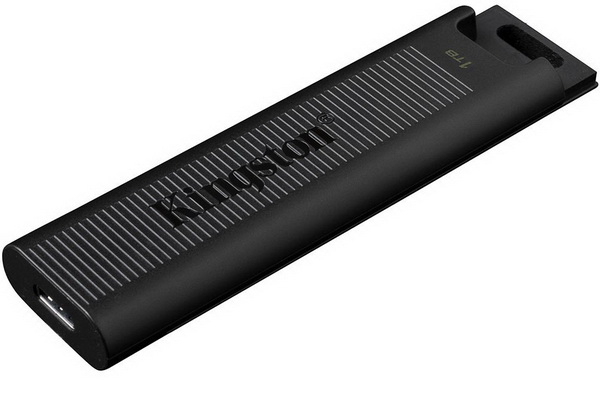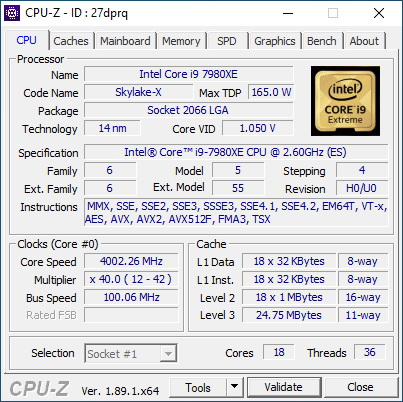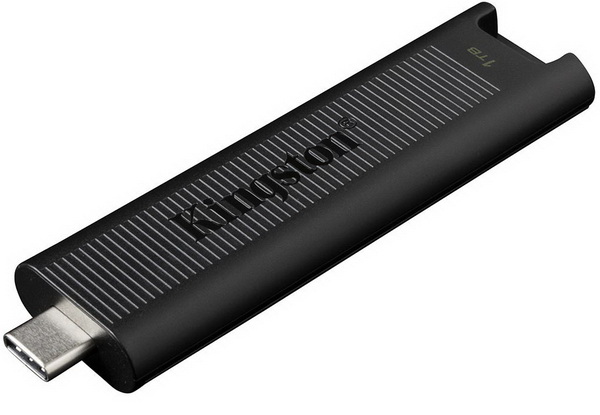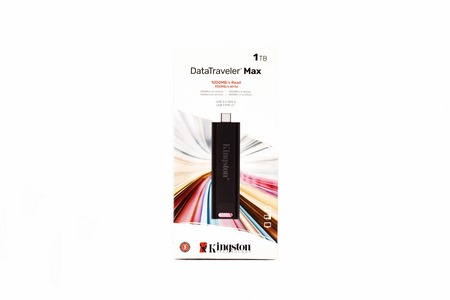INTRODUCTION

Over the years USB flash drives have evolved not just in terms of available storage capacity but also performance without at the same time having to sacrifice size to achieve this (with just a handful of exceptions). Yes, to date they still can't compete with some portable SSDs but USB 3.2 Gen 2 models are still capable of reaching very good sub-1Gb/s speeds which should be more than enough really for the majority of users out there. Well, with their recently released DT (DataTraveler) Max line of USB 3.2 Gen 2 flash drives Kingston clearly aims to "blur" the line between flash drives and portable SSDs and today I’ll be testing the top of the line 1TB model.
Kingston Technology Company, Inc. is the world’s largest independent manufacturer of memory products. Kingston designs, manufactures and distributes memory products for desktops, laptops, servers, printers, and Flash memory products for PDAs, mobile phones, digital cameras, and MP3 players. Through its global network of subsidiaries and affiliates, Kingston has manufacturing facilities in California, Taiwan, China and sales representatives in the United States, Europe, Russia, Turkey, Ukraine, Australia, India, Taiwan, China, and Latin America. For more information, please call +44 (0)1932 738888 or visit www.kingston.com
The DataTraveler Max line of USB 3.2 Gen 2 flash drives is currently available in 256GB/512GB/1TB capacities and is based on the same quad-channel (32 CEs) SM2320G NAND flash controller by Silicon Motion as their XS2000 portable SSD line. Not only this choice means that Kingston has no need for a USB bridge chip (this should reduce costs and probably also improve performance) but it also gives the DT Max features like Silicon Motion's NANDXtend ECC end-to-end data path protection (the SM2320G controller also supports real time full drive AES 256-bit encryption and TRNG for full compliance with the CG Opal v2.0 specification but the DT Max line does not make use of it). Two 3D TLC NAND flash modules are also present under the plastic housing of the DT Max 1TB (probably manufactured by Micron but unfortunately the serial numbers in my sample were just not visible enough). So, let's see if the DT Max 1TB USB 3.2 Gen 2 flash drive by Kingston has what it takes to compete with portable SSDs like the XS2000.
SPECIFICATIONS AND FEATURES

THE DATATRAVELER MAX 1TB
Kingston ships their new DT Max line of USB 3.2 Gen 2 flash drives inside a long white box that has a product picture at the front right over their logo and the 5-year warranty logo and beneath its advertised performance numbers and capacity.
System requirements are printed at the rear of the box right over a few words about storage capacity and Kingston (contact information and product serial numbers and barcodes are also located here).
Measuring 82.17mm in length, 22mm in width and 9.02mm in thickness the DT Max is one of the largest USB flash drives out there.
The plastic enclosure features a slide-in/out mechanism to expose the USB-C port (unfortunately its enclosure is not as sturdy as I’d like it to be).
At the base of the enclosure, we find several certifications along with the product serial number, barcode and country of manufacture.
As mentioned earlier the enclosure is not the sturdiest around so opening it is not hard.
So, on the top side we find the SM2320G NAND flash controller by Silicon Motion along with a single NAND flash module (512GB in capacity).
Another NAND flash module (again 512GB in capacity) is located on the other side of the PCB.
TEST BED


TESTING METHODOLOGY
Solid state drives are basically the same as USB flash drives and so we’re using almost the same testing methodology to successfully record achieved read & write performance numbers in our charts*. The benchmark suites used are HD Tach RW (Read Speeds / Long Bench 32mb Zone Testing), HD Tune Pro (Read / Write speeds), Sisoftware Sandra Titanium 2020 (Read / Write speeds), AIDA64 Engineer Edition (Average Linear / Random Read & Write speeds), Crystal Disk Mark 6.0.2 (2GB Read / Write speeds) and finally ATTO 4.00.0F2 (Max Read / Max Write speeds). Every test is repeated a total of 6 times after which the average performance numbers are recorded into our charts (0 = we were unable to complete that test).
All tests are performed with our main rig running Microsoft Windows 10 Pro installation on a CORSAIR MP510 960GB NVME SSD* with all updates installed up to the day we started tests.
* Since August 2019 for portable SSD tests I started using the X299 test rig.
** For USB 3.2 Gen2x2 portable SSDs I’ll be using the Z590 DARK based test rig.
TEST RESULTS - AIDA64 / ATTO


TEST RESULTS - HD TACH RW / HD TUNE PRO


TEST RESULTS - SISOFTWARE SANDRA TITANIUM / CRYSTAL DISK MARK


CONCLUSION

As you can see from the charts, I’m treating the DataTraveler Max 1TB USB 3.2 Gen 2 Flash Drive as if it was a Portable SSD and the reasons are 2, internal components (similar to that of the XS2000) and size (not your average flash drive). You can of course always check my very last USB flash drive review (here) for a direct comparison with such devices (testing methodology is almost identical) but like I said the DT Max feels a lot more like a portable SSD model. Yes, it may not perform quite as well as the XS2000 (USB 3.2 Gen 2 vs Gen 2x2) even though both drives use the same NAND flash controller but it does hold its own against many other portable SSDs and for its size that’s quite impressive. Now I’d really like it a lot more if Kingston had used an aluminum or even a rubber rugged enclosure (this product deserves something better than just plastic) and that’s pretty much my only issue with the DT Max.
At USD168.94 inside the USA (Amazon.com) and at around 160Euros inside the EU the DataTraveler Max 1TB USB 3.2 Gen 2 flash drive by Kingston is priced quite well. Granted, there are quite a few lower cost USB flash drives and portable SSDs out there with the same capacity but they are not as fast as the DT Max and at the end of the day that’s what matters to people who want the extra performance. Long story short the DataTraveler Max 1TB delivers on performance and size and even though it clearly deserved a better enclosure it’s still worthy of the Platinum Award.

PROS
- Impressive Performance (For A Flash Drive)
- Up To 1TB Capacity (For A Flash Drive)
- 5 Year Limited Warranty
- Compact Size
CONS
- Plastic Enclosure

 O-Sense
O-Sense















.png)

